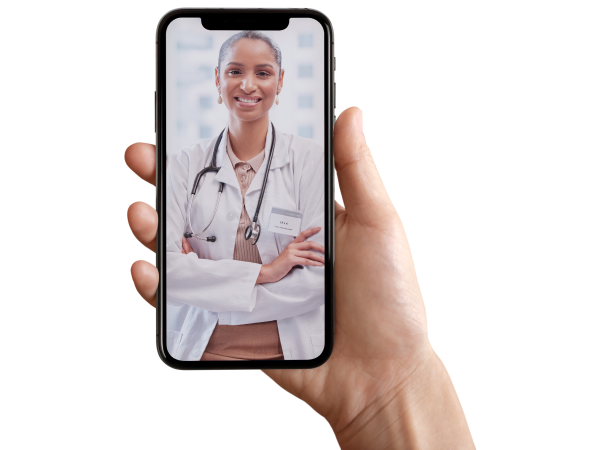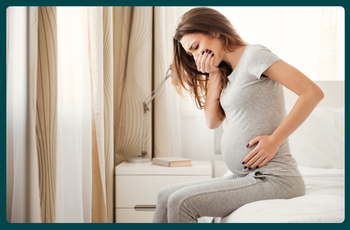Is diarrhoea during pregnancy the new normal?
Absolutely, it's as normal as those intense mood swings you've been riding. Your body is going through a whirlwind of changes, and your digestive system is no exception. Picture it as your body's version of spring cleaning, getting ready for the main event.What could be the cause of diarrhoea?
So, what's causing these frequent trips to the toilet? Well, there are a few culprits:- Hormonal rollercoaster: Those same hormones that have you laughing one minute and crying the next can also play havoc with your gut. Progesterone can relax the muscles in your digestive tract, speeding up the process and leading to diarrhoea.
- Eating for two: Switching to a healthier diet for your growing baby can introduce new foods or increase nutrient intake, leading to softer stools.
- Bugs and germs: Viruses, bacteria, or even a dodgy meal can set off a bout of diarrhoea. Your immune system is slightly altered during pregnancy, making you more susceptible to these infections.
- Medication side effects: Some prenatal vitamins or medications can also have diarrhoea listed as a potential side effect.
Home remedies for diarrhoea during pregnancy
If you're feeling a bit queasy, here are some DIY tips to help manage those troublesome symptoms:- Hydration: Keep that water coming, along with clear broths and rehydration drinks to replenish lost fluids and electrolytes. Staying hydrated is crucial, especially when you're losing more fluids than usual.
- The BRAT squad: Bananas, rice, applesauce, and toast are your allies in firming things up. These bland foods are easy on your digestive system and can help reduce diarrhoea.
- Probiotics: Yogurt with live cultures can help get your gut flora back in harmony. Probiotics can restore the balance of good bacteria in your intestines.
- Ginger: This root is a natural nausea buster and can also calm an unsettled stomach. Ginger tea or ginger ale (with real ginger) can be soothing.
- Peppermint: Sip on some peppermint tea for its soothing effects on the digestive tract. It can help reduce cramping and ease digestive discomfort.
What to avoid?
Some foods and habits can make matters worse. It's best to avoid:- Anything spicy: Spicy foods can irritate your digestive system and exacerbate diarrhoea.
- Dairy (if you're lactose intolerant): Lactose intolerance can worsen during pregnancy, leading to more digestive issues.
- Caffeine: It can act as a diuretic and dehydrate you further.
- Alcohol: Not safe during pregnancy for many reasons, including its effect on your gut.
- Artificial sweeteners: These can sometimes cause digestive upset and should be consumed in moderation.
Red flags: Knowing when to call the doctor
Your body is pretty good at sending signals when something's amiss. Persistent diarrhoea, severe cramping, fever, bloody stools, or difficulty keeping fluids down are all signs that it's time to pick up the phone and chat with a telehealth doctor. Don't wait too long, as dehydration can become a serious issue both for you and your baby.Virtual visits: Can a telehealth doctor lend a hand?
Telehealth can offer convenience, guidance, and even prescriptions without leaving your home. A video call with your healthcare provider can help assess your symptoms and decide on the best course of action. This can be particularly helpful if you're feeling too unwell to travel. Opting for telehealth could be a better option at this time as you get access to registered practitioners quicker, without the hassle to book an appointment, waiting rooms and travel. Book telehealth appointment within 15 minutes from home.Frequently Asked Questions: Clearing up the confusion
Is diarrhoea a sign of labour?
Diarrhoea can sometimes signal that labour is on the horizon, but it's not a guaranteed indicator. Everybody tells its story differently.What to eat when you have diarrhoea during pregnancy?
Stick to simple, easily digestible foods like bananas, rice, and toast. And don’t forget to drink plenty of fluids!Is it normal to have loose motion in the third trimester of pregnancy?
Third Trimester Troubles Loose motions in the third trimester are pretty standard, thanks to hormonal changes and the added pressure from your growing uterus.Can diarrhoea harm my unborn baby?
Diarrhoea won't harm your baby, but if it becomes severe or persistent, dehydration could be a concern, so it's worth checking in with your doctor.Can miscarriage cause diarrhoea?
Diarrhoea alone isn't a sign of miscarriage. However, if you experience bleeding, severe cramps, or pass tissue, it's crucial to seek immediate medical attention.How long before labour does diarrhoea start?
The onset of diarrhoea before labour varies greatly among women. Some might experience it days ahead, while others won't notice any change until they're in the thick of labour. Navigating the twists and turns of pregnancy, including the occasional dash to the bathroom, is all part of the beautiful chaos of becoming a mom. While diarrhoea is usually nothing to lose sleep over, staying informed and knowing when to seek help is essential. Remember, taking care of yourself means taking care of your little one too. Embrace the journey, stay hydrated, eat well, and don't hesitate to reach out for help when you need it. Your body is doing an incredible job, and so are you.
Consult an Online Doctor in 15 mins










 Facebook
Facebook Instagram
Instagram LinkedIn
LinkedIn



